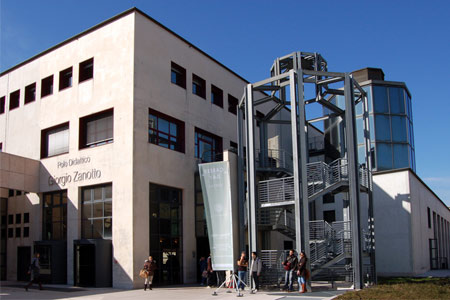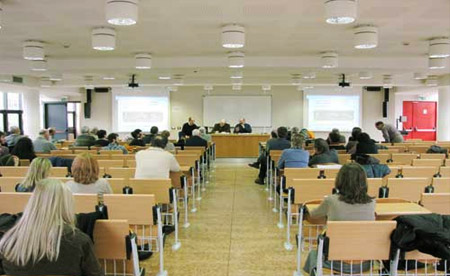The framework of our research conceives grammar as a meeting point for knowledge and reflection on language, as a training ground for measuring metalinguistic awareness to increase the dimension of 'national language' as language of use and linguistic system. The period of study will be mainly the 16th and 17th centuries, starting from some premises rooted in grammars of the 15th century. We trace three main lines of research: 1. the elaboration of a specific metalanguage in grammars elaborated in a metalinguistic database, 2. study of syntactic concepts as hidden inheritance of the medieval Modistae and grammarians in general, their intertwining with rhetoric, pursuing the codification of the syntax of subordination from Thomas of Erfurt until the end of the 17th century. This connects the research with that of the PRIN 2001 on the development of grammatical concepts in Europe and the origin of the definition of subordination, continued in the research started in PRIN 2017. The Verona unit deepens the studies of grammar and history of syntactic concepts in the Renaissance and seventeenth-century grammars, to complete the investigation path on the origin and development of syntactic theories. In particular, the unit will deal with subordination, including the role of interpunctions on syntax, as well as the study of the functions of conjunctions, participles and embedding structures in general, and of metalinguistic aspects. Furthermore, the study of rhetorical treatises is foreseen in their more syntactic structures, which include theoretical parts on the structure and definition of sentences, dependent and coordinated. The Macerata unit mainly deals with the Port Royal period as a legacy and in the light of the teachings of the Modistae theory, the results and topics of the research carried out in the PRIN 2017 project, continuing the studies on rhetoric that are intertwined with the research of the unit in Verona. Also the study of national and extra-national grammars, in particular those written in the context of Jesuit proselytizing activities, including those of both educational and descriptive nature (for national and classical languages), as well as the more theoretical ones, which accompany the formation of the concept and linguistic (national) awareness that the Jesuits certainly supported. The Palermo unit, continuing the contrastive studies between Eurocentric grammar and its terminology, already started in PRIN 2017, deals with the systems applied to the description of the grammars of European languages, such as Spanish and German, and also of non-European languages, Chequa and Aymara. This line intertwines with the aspects studied by the other units, with the metalinguistic and theoretical innovations and peculiarities and in general with the grammars of other traditions and their influence on European ones, to compose the building blocks of the concept of linguistic awareness.







